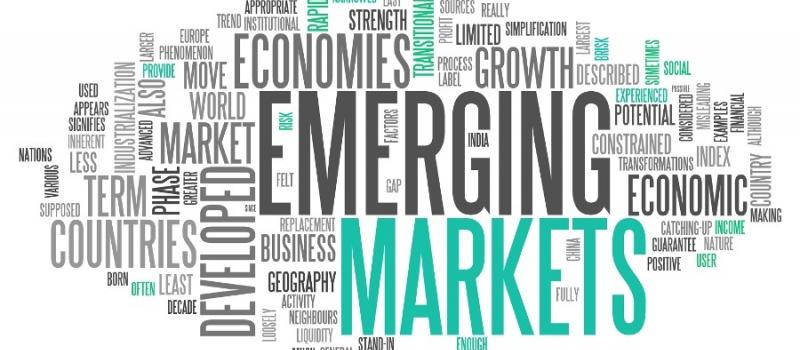Emerging Markets: Investment of the Year in 2017?
posted by Marsha Vande Berg on December 13, 2016 - 12:16pm

Strong fundamentals in Asia’s emerging markets may tempt outside investors to stay the course when the year turns. But a combination of domestic politics in 2017 and global uncertainties could risk becoming the nemesis of the New Year.
Questions about political continuity at home and support for reforms in Asia’s emerging markets hover over these economies’ striking potential for growth, including the outlook for strongman leaders in the Philippines, Malaysia and Thailand and Xi Jinping in China and Narendra Modi in India.
At the same time, developed markets are also a cause of uncertainty in Asia’s growth economies, notably the rising influence of populist and nationalist tendencies in electorates most recently in the UK and the US and pending in Austria, Italy, France and Germany.
Much of the uncertainty can be linked to questions about the effects of “Trump factor” in the US, still the world’s largest economy. It’s uncertain what impact the President-elect’s decision to withdraw from the Transpacific Trade Agreement talks will have on America’s self-appointed role as benign hegemon sitting astride the global trading system. Some of this uncertainty surfaced last month when China’s leadership said at the APEC summit that Beijing would take the lead in Asian trade in the absence of a US role via TPP.
In addition to the likelihood of interest rate hikes this month and into the New Year, emerging markets must also contend with an unrelentingly strong dollar.
As noted, Donald Trump’s election will not be the last time an electorate in the West threatens through plebiscites to undo the liberal order of government that has been the hallmark of the post WWII era. There are unsettling nationalistic influences at play across Europe in particular – a constitutional referendum in Italy and pending national elections in Austria, France and Germany – with implications for the immediate sustainability of the European Union and its monetary system and ramifications globally.
Asia, meanwhile, has its own share of political uncertainty with implications for these growth markets. In the world’s second largest economy, a contest over the ambitions of General Secretary Xi Jinping may be playing out inside the black box of Zhongnanhai, the central government’s headquarters.
As leaders of China’s Communist Party prepare for the 19th Party Congress next October, General Secretary Xi will complete the final year of his first five-year term in office.
While Xi is by all counts in a very strong position, the bigger question is what is the extent of his ambition as China’s foremost leader. How will he deal with party precedents if they turn out to be obstacles to getting what he wants particularly the people he wants in place in key positions like the Standing Committee of the Politburo?
Will he attempt to sidestep a longstanding party precedent that says Chinese leaders must retire at age 68, or will he act to ensure his loyalists either retain their positions or move into key slots that strengthen his hand even more. If he does have his way, a key concern is whether the world’s second largest economy – soon to be the largest – will be led by an individual who wants to follow in the footsteps of Chairman Mao Zedong, head of China from 1949 to 1976?
It’s a volatile cocktail. At the very least, the contest will serve as a distraction from a slowing economy straining under heavy corporate debt and fears of property asset bubbles as well as important initiatives like the pan-Asia infrastructure program, One Belt One Road, not to mention critical financial and capital market reforms.
In India, Modi’s BJP party faces challenges in several state elections in 2017, arguably the most important of which are elections in January in the populous Utter Pradesh. A negative outcome for Modi, possibly as a result of the controversial campaign to rid the economy of large rupee notes as part of an anti-corruption campaign, would undercut Modi’s political clout as he tries to move India forward with 7-8 percent annual GDP growth.
In Southeast Asia, an easy bull market case among these emerging markets can be made for Indonesia. The government of Joko “Jokowi” Widodo is reform-minded, and his reforms enjoy critical support. The central Bank still has sufficient tools to deal with monetary fluctuations. At the same time, Indonesia, like Malaysia enjoys rather liquid markets so in the event of a global sell off, equities in liquid markets can be among the first to get disposed.
There’s an additional overhang in Malaysia as a result of the as yet unresolved corruption investigation involving the state development fund, IMDB. The office of the Prime Minister Najib Razak and the prime minister himself has been implicated. In Thailand, there is still not a clear course for returning to civilian government while citizens mourn the loss of their bellowed king, Bhumibol Adulyadiji.
In the Philippines’ tough-guy president, Rodrigo Duterte, remains a popular figure at home while riling his country’s allies with his anti-corruption bombast and threats of sanctioned killings as antidote to drug crimes.
It’s a potent mix of possibilities in Asia’s growth economies, and challenges seem to lurk at the heart of each. Political volatility will be a factor alongside economic and monetary volatility in 2017. Outcomes will remain unpredictable. The upside may go to those who manage to position themselves to identify which of these growth markets has the strongest oar to navigate difficult domestic and geopolitical shoals.

